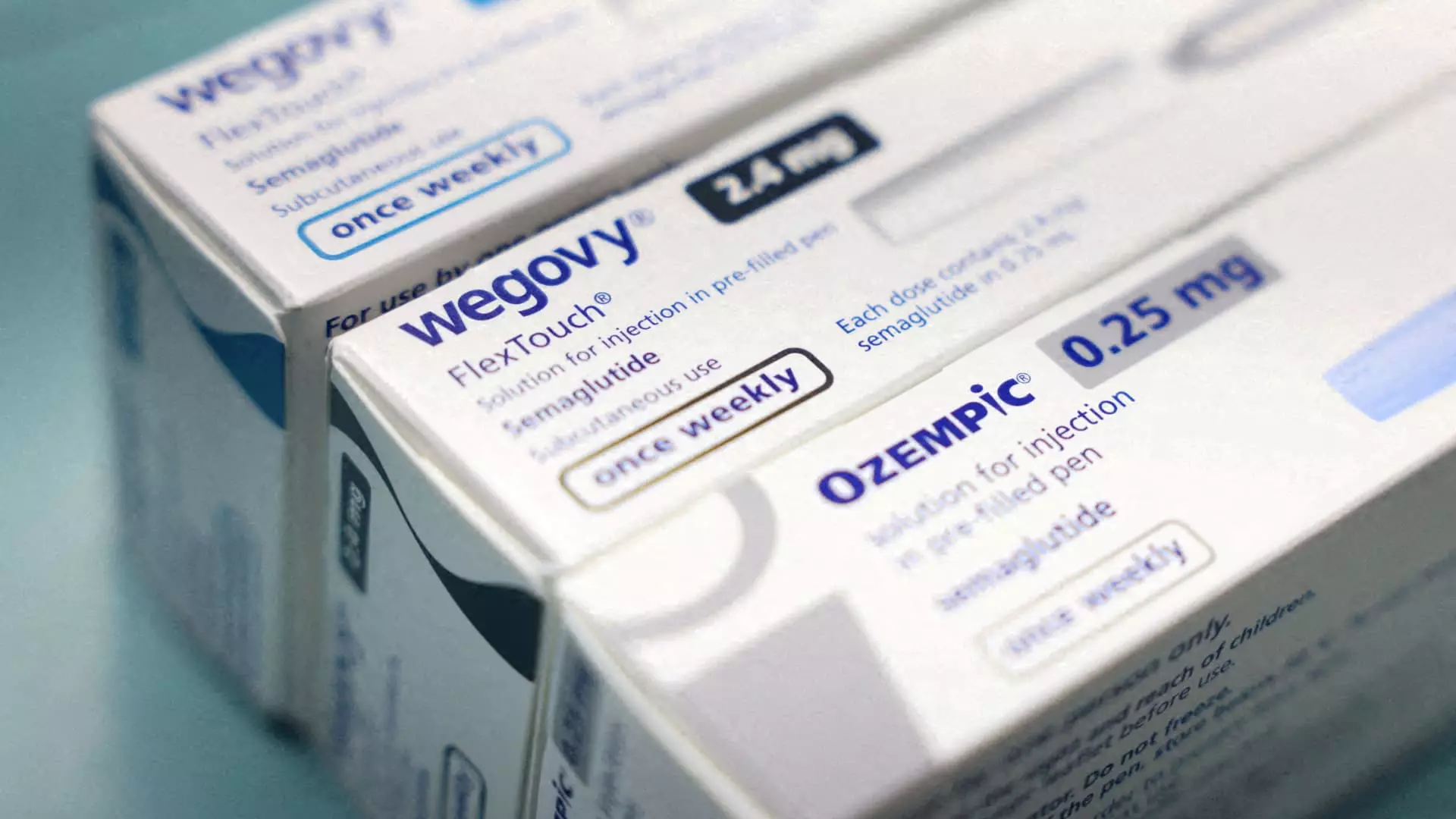The ongoing predicament surrounding the availability of Novo Nordisk’s leading weight-loss medication, Wegovy, and diabetes treatment, Ozempic, has finally reached a turning point. As confirmed by the U.S. Food and Drug Administration (FDA), the long-standing shortage of these crucial semaglutide-based injections has been resolved after over two years of disruption. This article examines the FDA’s recent ruling, the ramifications for compounding pharmacies, patient access, and the competitive dynamics in the rapidly expanding pharmaceutical market.
On a recent Friday, the FDA announced that the supply issues regarding Wegovy and Ozempic had been effectively addressed, marking a significant milestone for both the pharmaceutical company and patients in need of these treatments. The resolution follows an unprecedented spike in demand for semaglutide injections since 2022, a development that had put immense strain on Novo Nordisk’s manufacturing capabilities. The FDA’s statement suggests that the company has successfully ramped up production to meet the current and anticipated demand in the United States.
The announcement has had an immediate impact on the stock market, with Novo Nordisk shares experiencing a surge of approximately 5%. In contrast, shares of telehealth firms like Hims & Hers, which had capitalized on the shortage by providing compounded versions of these injectables, saw a dramatic decline of over 25%. This shift underscores the financial stakes involved as the legitimate supply of FDA-approved medications restores the competitive landscape.
One of the most significant changes resulting from the FDA’s announcement is the impending closure of compounding pharmacies that had been producing unapproved versions of semaglutide. For more than two years, these pharmacies offered a crucial alternative for patients who could not access the branded medications due to the shortage. With the FDA’s declaration, these pharmacies are required to cease producing compounded versions of the drugs in the next 60 to 90 days.
While this decision aims to enhance patient safety by reducing the risks associated with using untested or unapproved drugs, it has implications for accessibility. Many patients have relied on compounded options, especially since weight loss drugs like Wegovy are not covered by Medicare and various insurance plans, leading to potential affordability challenges for those seeking these treatments.
Before this recent resolution, Novo Nordisk faced heightened competition from Eli Lilly as both companies offered medications like Mounjaro and Zepbound, with the latter’s active ingredient, tirzepatide, also recently cleared of shortages. The FDA’s affirmation of Novo Nordisk’s supply capabilities positions the company favorably in what many analysts predict could be a booming weight-loss market valued at over $150 billion by 2030.
Dave Moore, Novo Nordisk’s executive vice president of U.S. operations, emphasized the significance of ensuring that patients receive genuine medications rather than potentially harmful unapproved alternatives. The FDA’s decision to terminate the shortage status of semaglutide means that compounding pharmacies will no longer be able to operate in this gray area, aligning the marketplace under stringent safety regulations.
As the landscape becomes clearer for Novo Nordisk, questions around patient access and equitable healthcare remain paramount. While the company has resolved its supply issues, the lack of insurance coverage for Wegovy, particularly through Medicare, raises concerns about affordability and accessibility for many potential users.
Moreover, the promise of innovative treatments in obesity and diabetes management must balance with considerations of public health and economic sustainability. Healthcare stakeholders must continue to advocate for improved insurance models that could eventually include coverage for these important therapies, ensuring that all patients, regardless of economic status, can access the treatments they need.
Though the resolution of the semaglutide shortage marks a critical advancement in addressing the healthcare needs for diabetes and weight loss management, it simultaneously highlights ongoing challenges surrounding patient access, competitive dynamics in pharmaceuticals, and broader implications for public health policies. As Novo Nordisk regains its footing, the healthcare community must prioritize patient safety, affordability, and system-wide efficiency to harness the full potential of these groundbreaking medications.

